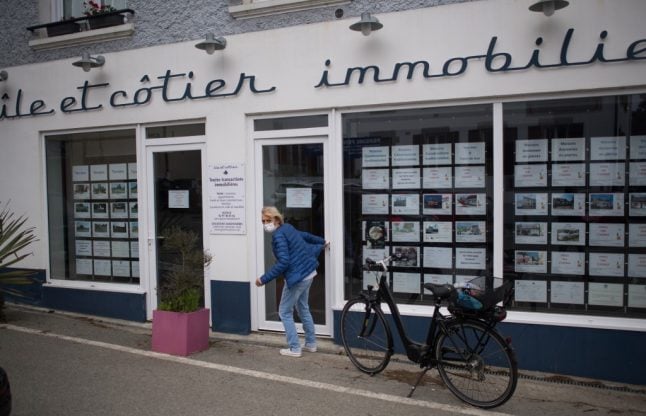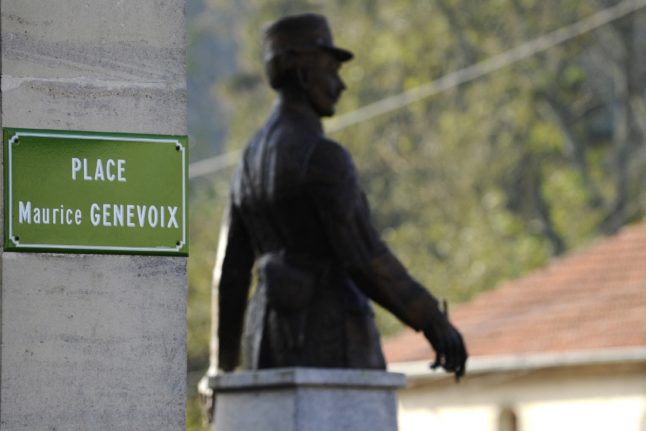British people who want to move to France will only benefit from the provisions of the Withdrawal Agreement if they are in the country by December 31st, creating a last-minute rush for housing.
Although the pandemic and two successive lockdowns have made house-hunting considerably more difficult, moving house is one the reasons currently permitted for travel between France and the UK.
READ ALSO Can you move house to France during lockdown?
To find out more about the Brexit deadline, click here.
But although this has undoubtedly created a surge of last-minute buyers, real estate agency Leggett Immobilier – which caters to many British buyers house-hunting in France – says the interest in buying second homes also remains strong.
Joanna Leggett said: “The market remains red hot and it looks as though France will again break the million sales barrier in 2020, despite losing two months during lockdown earlier this year.
“To give this some context, Leggett received an average of 22,000 separate enquiries each month between June and September, compared to 11,500 last year.
Of course, there has been a rush from British buyers looking to move across before December 31st but, significantly, enquiries from the UK do not seem to be slowing much. We are confident that 2021 will see this strong demand continuing.”
Aside from Brexit, the other major factor driving the purchases is the pandemic and the consequent rise in remote working.
READ ALSO
- Rent or buy: What you need to know about France's changing property market
- What you need to know if you're planning on moving to France in 2020
- Property prices: The cheapest areas of France to move to
Joanna added: “It's noticeable that buyers (both French and international) are asking for rural property, with excellent broadband and room for a home office.
“We have definitely seen young families buying property, with many saying that it is essential they are able to work from home. We have been selling many larger properties, with bigger gardens, where families can create their own 'bubble'. Budgets have increased over the last few months to encompass this.
“We did have a rush of Brits wanting to move permanently before year end, so that they can become resident. However, the balance is currently shifting, with many buyers now looking for holiday homes they can use, as and when any future lockdowns come into place.
“You only have to look at the pictures of traffic streaming out of Paris when the lockdowns were announced to understand the importance of a second home in the country.
“The initial 'full time home' interest from the UK was definitely inspired by Brexit, however the increased demand for second homes is being driven by the broader societal change of how we will live in the future.
“Work from home, the desire for light, airy houses with plenty of outdoor space, balconies on city apartments – this seems likely to be a permanent and radical shift in what buyers want.”
And for British buyers, at least, there is another shift – one towards property in northern France.
Areas of the south west such as Dordogne and Charente have long been popular for British people, both to live and have second homes in, but Leggett has reported an increase in demand for northern France.
READ ALSO Where in France do all the Brits live?
Joanna said: “There is a noticeable demand amongst British buyers for properties within easy reach of the ferry ports and Eurotunnel.
“It's clear that buyers see travel by car as a preferred option and thus Brittany, Normandy, Pays-de-la-Loire and Centre-Val-de-Loire are all benefiting.
“It looks like these will be the hotspots of 2021.”
One thing British second-home owners will need to bear in mind from January, however, is the 90-day rule, which means that people are not resident in France can only spend 90 days out of every 180 there – find out more about how that works here.



 Please whitelist us to continue reading.
Please whitelist us to continue reading.
I hope Ms Leggett warns prospective UK lockdown escapees that going to your maison secondaire in lockdown is not permitted. The queues trying to get out of Paris were trying to avoid the 9.00 pm curfew ahead of the lockdown midnight deadline. It should be in this article too.